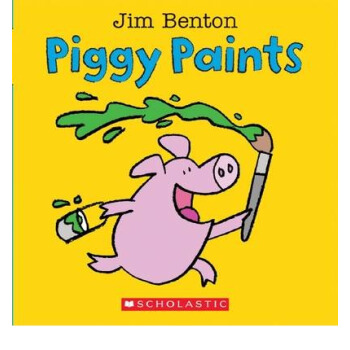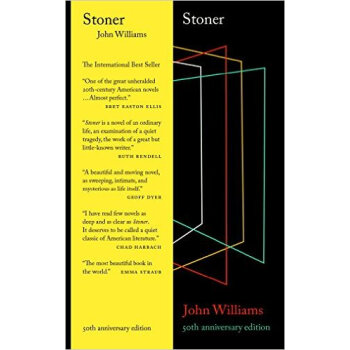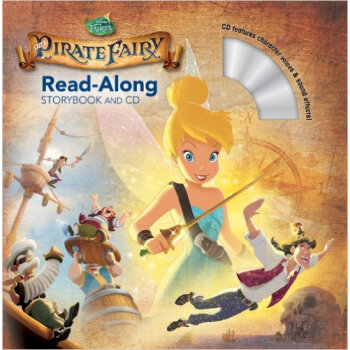![John Cheever 英文原版 [精装]](https://pic.tinynews.org/19132852/b9dd032b-870f-4cfc-883d-aab55c41fe0e.jpg)

具体描述
内容简介
John Cheever's stories rank among the finest achievements of 20th-century short fiction. Ensnared by the trappings of affluence, adrift in the emptiness of American prosperity, his characters find themselves in the midst of dramas that, however comic, pose profound questions about conformity and class, pleasure and propriety, and the conduct and meaning of an individual life. At the same time, the stories reveal their author to be a master whose prose is at once precise and sensuous, in which a shrewd eye for social detail is paired with a lyric sensitivity to the world at large. The constants that I look for, he wrote in the preface to The Stories of John Cheever, are a love of light and a determination to trace some moral chain of being.By the late 1940s Cheever had come into his own as a writer, achieving a breakthrough in 1947 with the Kafkaesque tale "The Enormous Radio." It was soon followed by works of startling fluency and power, such as the unsettling Torch Song, with its suggestion of menace and the uncanny, as well as the searing, beautiful treatment of fraternal conflict, "Goodbye, My Brother." Finally, when Cheever and his family moved to Westchester County in the 1950s, he began writing about the disappointments of postwar suburbia in such definitive classics as "The Sorrows of Gin," "The Five-Forty-Eight," "The Country Husband," and "The Swimmer."
This volume, published to coincide with Blake Bailey's groundbreaking biography, is the largest collection of Cheever's stories ever published, and celebrates his indelible achievement by gathering the complete Stories of John Cheever (1978), as well as seven stories from The Way Some People Live and seven additional stories first published in periodicals between 1930 and 1953. Also included are several short essays on writers and writing, including a previously unpublished speech on Saul Bellow.
前言/序言
用户评价
坦白说,这本书的阅读体验是双刃剑。一方面,它的文学成就毋庸置疑,那种对语言的驾驭能力,对白中蕴含的潜台词,都是顶尖水平。但另一方面,它带来的情绪负荷非常重。你很难在其中找到一个可以真正寄托希望的角色,大部分人似乎都深陷于自己亲手编织的、华丽却又冰冷的牢笼中无法自拔。它像一面高倍放大的镜子,照出了人类共同的缺陷:对身份的过度执着、对情感表达的恐惧、以及对“体面”二字的病态追求。我读到中期时,甚至产生了一种强烈的疏离感,仿佛不是在看故事,而是在观察一个物种的退化过程。这绝不是一本适合睡前放松的书籍,它需要你投入全部的注意力去解码,去感受那种弥漫在空气中,连阳光都无法穿透的阴郁。
评分这本小说简直是美国中产阶级生活图景的一面镜子,每一页都散发着那种精致而又令人窒息的疏离感。作者对人物内心世界的刻画入木三分,那种潜藏在完美郊区生活表象下的焦虑、欲望和无法言说的空虚,被他用一种近乎冷峻的笔触描摹得淋漓尽致。你仿佛能闻到那些修剪得一丝不苟的草坪上残留的除草剂气味,听到邻里间那些礼貌却又暗藏机锋的寒暄。角色们在看似稳定的一切中挣扎,他们的情感就像被紧紧包裹在保鲜膜里的食物,时间一久,味道就开始微妙地变质。读着读着,我常常会停下来,盯着窗外,思考自己是不是也曾在不经意间,成为了自己生活里的一个陌生观察者。那种对“美国梦”破裂的细腻捕捉,不是宏大的控诉,而是生活细节里一点一滴的渗漏,让人读完后久久不能平复,心里总有一块地方感到微微的凉意。它揭示了在物质丰裕的背景下,精神世界可能面临的荒芜,让人不禁反思,我们究竟在追逐些什么。
评分这本书的厉害之处,在于它对“小镇”这个概念的重新定义。它不是田园牧歌,而是某种精心布置的、高压力的微缩社会试验场。每个人都清楚别人的底细,但又都默契地遵守着一套心照不宣的潜规则。我特别欣赏作者处理时间的方式,他经常在一段场景的描述中突然插入一段对过去某个关键时刻的回溯,这种跳跃感处理得极为自然,没有丝毫生硬的痕迹。正是这些碎片化的记忆,拼凑出了角色们如今的僵局。而且,书中对酒精和婚姻关系的处理简直是教科书级别的。那种在派对上故作轻松,一杯接一杯地灌下烈酒,试图麻醉自己对现实不满的状态,描写得入木三分,让人感同身受。它没有提供任何简单的答案或廉价的安慰,只是把这些复杂的人性困境赤裸裸地摊开在你面前,让你自己去体会那份无力感。
评分这本书的结构和主题的复杂性,使得它更像是一部精密的交响乐,而非简单的独奏曲。每一个人物的命运线索,看似独立,实则通过微妙的事件和共同的生活环境紧密交织在一起,形成一张庞大而无形的网。作者的叙事视角在不同人物间流畅切换,像是在空中盘旋的无人机,时而聚焦于某对夫妻的冷战,时而又拉远景拍摄整个社区的浮躁。最让我印象深刻的是,作者几乎从不使用直接的内心独白来解释角色的动机,而是通过他们与环境、与他人的互动,以及那些未说出口的话语,让读者自己去推断。这种“留白”的处理方式,极大地增强了作品的艺术感染力。它要求读者主动参与到意义的构建中来,这使得每一次重读都会带来新的领悟,绝非一次性消费品。它成功地捕捉到了现代生活中的一种核心矛盾:我们拥有了一切,却好像失去了最本质的东西。
评分初次翻开这本书时,我被它那看似平淡无奇的叙事节奏稍微难住了,节奏慢得像夏日午后粘稠的空气,让人几乎想直接跳到冲突爆发点。但坚持读下去后,我才领悟到这种缓慢正是其魅力所在——它强迫你放慢自己的呼吸,像一个耐心的考古学家,去挖掘字里行间埋藏的线索。作者的句子结构有一种奇特的韵律感,长短句交错间,构建出一种既古典又现代的文学质地。尤其是在描写人物的肢体语言和环境细节时,那种精确度简直令人惊叹,每一个道具、每一束光线似乎都有其存在的深意,共同烘托出一种无声的戏剧张力。这不像是一部情节驱动的小说,更像是一系列精心编排的舞台剧片段,光影交错中,你看清了角色的虚伪,也看到了他们偶尔闪现的、真实得令人心碎的脆弱。读完后,你会觉得自己的文学品味都被提升了一个档次,因为它考验的不是你的耐心,而是你的敏感度。
评分契弗1912年5月27日生于马萨诸塞州的昆西小镇。他就读于该州南布伦特里的塔耶学院,这是新英格兰一所古老、刻板的学校;当契弗进校时,拉丁语和希腊语仍然是必修课。在回忆这段学校生活时,契弗写道:“回忆起来,这学校似乎是相当令人歆羡的。校舍是世纪初的建筑物,偌大的窗扉,显得异常的沉郁。因为教室过于宽敞,冬季无法保暖,所以校方允许我们在拼写、变换拉丁语动词时,穿大衣外套,戴帽子、围脖和连指手套。我父亲的一位堂哥,曾经留学希腊,给学校遗赠了他几乎所有伯里克利时代雅典的艺术雕塑。就这样,我们戴着耳套,嘴里呵着顷刻变白的气,置身于一大群裸体的男、女雕塑之间。当我后来渐渐长大,才真正意识到这种情景令人默默冁然的讽喻。我当时关心的是,学校并不致力于给我们以教育,而只是追求让我们全考上哈佛大学,并能在那儿循规蹈矩,至少待上一年。”可是,这种教育并不是契弗所喜欢、所追求的。十六岁那年,他拒绝背诵希腊剧作家的名字,这些剧作家的作品他一部也不读。因此,他被揪往校长办公室,校方很快开除了他。根据这次被开除的经验,他写了一篇小说《被开除》,描述他对现存的机械式教育制度的失望情绪,寄给《新共和杂志》。当时,美国著名文艺批评家、诗人和翻译家马尔科姆·考利正在《新共和杂志》当编辑。考利给契弗写了一封回信,说准备刊登。契弗当时正在缅因州,收到信后欣喜若狂,为了庆祝这一事件,初夏的一天,他独自登了一座山。那年秋天,契弗到纽约找考利,考利在自己寓所非常客气地接待了契弗。于此,开始了契弗与考利持续一生的友谊。契弗后来回忆道:“考利无异于我的父亲,而我是他的学生——也许是个半路出家的学生。”考利后来又把契弗介绍与《纽约客》编辑凯瑟琳·安吉尔·怀特相识。契弗于此就成了《纽约客》的主要投稿人,经过怀特的手,发表了一百二十篇短篇小说。
评分Cheever的小说没怎么看过,买一本看看。卢弼在《覆胡绥之先生书》中,对前人研究、考订《三国志》的成果,作了评价:“竹汀、晦之,昆仲济美,如论精核,弟逊于兄。少章、慕庐,能见其大。大宗补注,精义无多。安溪侃侃,义正辞严。瓯北、西庄,谈锋犀利。稚安考证,多详日月。东潜注补,包贯众流。侯、姚艺文,姚为繁富。沈引书目,后来居先。梁氏旁证,喜摭异闻。琐言晚出,持论衡平。援鹑笔记,非其专长。孟慈职官,颇称明备,洪、谢、吴、杨,详述疆域。刘氏知意,专主实斋。官本考证,剽窃何、陈,专攻明监,所见已隘,纪传莫辨,廪禄虚糜。诸家成书,短长互见。”这一段话,涉及钱大昕《廿二史考异》、钱大昭《三国志辨疑》、陈景云《三国志辨误》、杭世骏《三国志补注》、赵翼《廿二史札记》、王鸣盛《十七史商榷》、潘眉《三国志考证》、赵一清《三国志注补》、侯康《补三国艺文志》、姚振宗《三国艺文志》、沈家本《三国志注所引书目》、梁章钜《三国志旁证》、沈家本《三国志琐言》、姚范《援鹑堂笔记》、洪饴孙《三国职官表》、洪亮吉《补三国疆域志》、谢钟英《补三国疆域志补注》、吴增仅《三国郡县表》、杨守敬《三国郡县表补正》、刘咸炘《三国志知意》等书。这不过是《集解》引书的一小部分。可惜《集解》未附录“引用书目”,引书时一般只标作者姓名,而不标书名篇名(个别的除外),读者感到查检不便。 在上述古籍中,卢弼对赵一清(东潜)《三国志注补》的评价最高,但也指出其不足之处。卢弼引书,有三种情况:一是只引用,无补充;二是引用之后,有所发挥;三是引用之后,进行辨驳。他在《序例》中,对第三种情况,作了说明:“诸家笺注,东潜最为繁富,然秕稗留遗,愆违盈目,随文纠正,无所隐饰。推之众说,亦复云然。或谓既知乖舛,即宜芟除,奚为存录,徒秽篇章。不知摭拾不周,人疑阙漏,匡矫不力,虑失真诠,虽云辞费,实非贸然。”可见《集解》所追求的目标是,引书既要全而不漏,又不能听任谬说传播。古籍因年代久远,读者难以明了,需要为之作注。注释因年代久远,读者也难以明了,需要为之作疏。卢弼继承这个传统,既为《三国志》作注,又为裴注作疏,他在《序例》中,说明这样做的理由:“或谓陈志简洁,注释宜详,裴注明通,奚事诠解。不知世期所采,都为魏晋名编,流传到今,悉成故书雅记。温公《通鉴》,摘取颇多,身之音注,亦极畅达。(《通鉴》多采裴注,胡氏于所采者多有注)理宜搜罗,藉便浏览。注家有疏,已成先例,曲折剖判,不厌求详。亦有裴注偶误,间存商榷,疑滞扫除,敷畅厥指,亦学者所有事也。”裴注完成于元嘉六年(429),1500多年来的研究、考订成果很多,卢弼加以收集、整理,并发表自己的见解,写入《集解》中,不仅给读者带来方便,而且增加了《集解》的学术价值。试举一例,以见卢弼兼注《三国志》正文和裴注,是必要的,不是多馀的。 《魏书·武帝纪》裴注引《魏书》:“太尉桥玄,世名知人,睹太祖而异之,曰:‘吾见天下名士多矣,未有若君者也!君善自持。吾老矣!愿以妻子为托。'由是声名益重。” 《集解》:“《世说·识鉴篇》:曹公少时见桥玄,玄谓曰:天下方乱,群雄虎争,拨而理之,非君乎?然君实是乱世之英雄,治世之奸贼。恨吾老矣,不见君富贵,当以子孙相累。刘孝标注以《世说》所言为谬。弼按:刘注是。若桥公谓为奸贼,魏武必不祀以太牢矣。” 《魏书·武帝纪》裴注引孙盛《异同杂语》:“(太祖)尝问许子将:‘我何如人?'子将不答。固问之,子将曰:‘子治世之能臣,乱世之奸雄。'” 《集解》:“胡三省曰:言其才绝世也。天下治则尽其能为世用,天下乱则逞其智为时雄。弼按:二语实为确论,无愧汝南月旦之评。《蜀志·许靖传》:靖与曹公书云:自窜蛮貊,成阔十年,吉凶礼废。昔在会稽,得所贻书,辞旨款密,久要不忘。是魏武与子将昆仲夙有雅故。少年即与名流结纳,可知其人。胡玉缙曰:二语恐孙盛因晋承魏祚,有所避忌,加以窜改,当以范书《许劭传》为得其实。后丕深嫉月旦,欲取其首,未始不由于此,况劭本鄙操者乎!
评分契弗1912年5月27日生于马萨诸塞州的昆西小镇。他就读于该州南布伦特里的塔耶学院,这是新英格兰一所古老、刻板的学校;当契弗进校时,拉丁语和希腊语仍然是必修课。在回忆这段学校生活时,契弗写道:“回忆起来,这学校似乎是相当令人歆羡的。校舍是世纪初的建筑物,偌大的窗扉,显得异常的沉郁。因为教室过于宽敞,冬季无法保暖,所以校方允许我们在拼写、变换拉丁语动词时,穿大衣外套,戴帽子、围脖和连指手套。我父亲的一位堂哥,曾经留学希腊,给学校遗赠了他几乎所有伯里克利时代雅典的艺术雕塑。就这样,我们戴着耳套,嘴里呵着顷刻变白的气,置身于一大群裸体的男、女雕塑之间。当我后来渐渐长大,才真正意识到这种情景令人默默冁然的讽喻。我当时关心的是,学校并不致力于给我们以教育,而只是追求让我们全考上哈佛大学,并能在那儿循规蹈矩,至少待上一年。”可是,这种教育并不是契弗所喜欢、所追求的。十六岁那年,他拒绝背诵希腊剧作家的名字,这些剧作家的作品他一部也不读。因此,他被揪往校长办公室,校方很快开除了他。根据这次被开除的经验,他写了一篇小说《被开除》,描述他对现存的机械式教育制度的失望情绪,寄给《新共和杂志》。当时,美国著名文艺批评家、诗人和翻译家马尔科姆·考利正在《新共和杂志》当编辑。考利给契弗写了一封回信,说准备刊登。契弗当时正在缅因州,收到信后欣喜若狂,为了庆祝这一事件,初夏的一天,他独自登了一座山。那年秋天,契弗到纽约找考利,考利在自己寓所非常客气地接待了契弗。于此,开始了契弗与考利持续一生的友谊。契弗后来回忆道:“考利无异于我的父亲,而我是他的学生——也许是个半路出家的学生。”考利后来又把契弗介绍与《纽约客》编辑凯瑟琳·安吉尔·怀特相识。契弗于此就成了《纽约客》的主要投稿人,经过怀特的手,发表了一百二十篇短篇小说。
评分A Booker Award winning fictional autobiography of an Australian 'bushranger' in the late 1800's written as a series of letters to his daughter purportedly in the style of Ned Kelly, an uneducated son of a transport convict who, despite good intentions, finds himself at the notorious head of an outlaw gang. Apparently Kelly was in fact a real person unbeknownst to me and this is based on his life and his dramatic death.
评分Cheever的小说没怎么看过,买一本看看。卢弼在《覆胡绥之先生书》中,对前人研究、考订《三国志》的成果,作了评价:“竹汀、晦之,昆仲济美,如论精核,弟逊于兄。少章、慕庐,能见其大。大宗补注,精义无多。安溪侃侃,义正辞严。瓯北、西庄,谈锋犀利。稚安考证,多详日月。东潜注补,包贯众流。侯、姚艺文,姚为繁富。沈引书目,后来居先。梁氏旁证,喜摭异闻。琐言晚出,持论衡平。援鹑笔记,非其专长。孟慈职官,颇称明备,洪、谢、吴、杨,详述疆域。刘氏知意,专主实斋。官本考证,剽窃何、陈,专攻明监,所见已隘,纪传莫辨,廪禄虚糜。诸家成书,短长互见。”这一段话,涉及钱大昕《廿二史考异》、钱大昭《三国志辨疑》、陈景云《三国志辨误》、杭世骏《三国志补注》、赵翼《廿二史札记》、王鸣盛《十七史商榷》、潘眉《三国志考证》、赵一清《三国志注补》、侯康《补三国艺文志》、姚振宗《三国艺文志》、沈家本《三国志注所引书目》、梁章钜《三国志旁证》、沈家本《三国志琐言》、姚范《援鹑堂笔记》、洪饴孙《三国职官表》、洪亮吉《补三国疆域志》、谢钟英《补三国疆域志补注》、吴增仅《三国郡县表》、杨守敬《三国郡县表补正》、刘咸炘《三国志知意》等书。这不过是《集解》引书的一小部分。可惜《集解》未附录“引用书目”,引书时一般只标作者姓名,而不标书名篇名(个别的除外),读者感到查检不便。 在上述古籍中,卢弼对赵一清(东潜)《三国志注补》的评价最高,但也指出其不足之处。卢弼引书,有三种情况:一是只引用,无补充;二是引用之后,有所发挥;三是引用之后,进行辨驳。他在《序例》中,对第三种情况,作了说明:“诸家笺注,东潜最为繁富,然秕稗留遗,愆违盈目,随文纠正,无所隐饰。推之众说,亦复云然。或谓既知乖舛,即宜芟除,奚为存录,徒秽篇章。不知摭拾不周,人疑阙漏,匡矫不力,虑失真诠,虽云辞费,实非贸然。”可见《集解》所追求的目标是,引书既要全而不漏,又不能听任谬说传播。古籍因年代久远,读者难以明了,需要为之作注。注释因年代久远,读者也难以明了,需要为之作疏。卢弼继承这个传统,既为《三国志》作注,又为裴注作疏,他在《序例》中,说明这样做的理由:“或谓陈志简洁,注释宜详,裴注明通,奚事诠解。不知世期所采,都为魏晋名编,流传到今,悉成故书雅记。温公《通鉴》,摘取颇多,身之音注,亦极畅达。(《通鉴》多采裴注,胡氏于所采者多有注)理宜搜罗,藉便浏览。注家有疏,已成先例,曲折剖判,不厌求详。亦有裴注偶误,间存商榷,疑滞扫除,敷畅厥指,亦学者所有事也。”裴注完成于元嘉六年(429),1500多年来的研究、考订成果很多,卢弼加以收集、整理,并发表自己的见解,写入《集解》中,不仅给读者带来方便,而且增加了《集解》的学术价值。试举一例,以见卢弼兼注《三国志》正文和裴注,是必要的,不是多馀的。 《魏书·武帝纪》裴注引《魏书》:“太尉桥玄,世名知人,睹太祖而异之,曰:‘吾见天下名士多矣,未有若君者也!君善自持。吾老矣!愿以妻子为托。'由是声名益重。” 《集解》:“《世说·识鉴篇》:曹公少时见桥玄,玄谓曰:天下方乱,群雄虎争,拨而理之,非君乎?然君实是乱世之英雄,治世之奸贼。恨吾老矣,不见君富贵,当以子孙相累。刘孝标注以《世说》所言为谬。弼按:刘注是。若桥公谓为奸贼,魏武必不祀以太牢矣。” 《魏书·武帝纪》裴注引孙盛《异同杂语》:“(太祖)尝问许子将:‘我何如人?'子将不答。固问之,子将曰:‘子治世之能臣,乱世之奸雄。'” 《集解》:“胡三省曰:言其才绝世也。天下治则尽其能为世用,天下乱则逞其智为时雄。弼按:二语实为确论,无愧汝南月旦之评。《蜀志·许靖传》:靖与曹公书云:自窜蛮貊,成阔十年,吉凶礼废。昔在会稽,得所贻书,辞旨款密,久要不忘。是魏武与子将昆仲夙有雅故。少年即与名流结纳,可知其人。胡玉缙曰:二语恐孙盛因晋承魏祚,有所避忌,加以窜改,当以范书《许劭传》为得其实。后丕深嫉月旦,欲取其首,未始不由于此,况劭本鄙操者乎!
评分很不错
评分A Booker Award winning fictional autobiography of an Australian 'bushranger' in the late 1800's written as a series of letters to his daughter purportedly in the style of Ned Kelly, an uneducated son of a transport convict who, despite good intentions, finds himself at the notorious head of an outlaw gang. Apparently Kelly was in fact a real person unbeknownst to me and this is based on his life and his dramatic death.
评分A Booker Award winning fictional autobiography of an Australian 'bushranger' in the late 1800's written as a series of letters to his daughter purportedly in the style of Ned Kelly, an uneducated son of a transport convict who, despite good intentions, finds himself at the notorious head of an outlaw gang. Apparently Kelly was in fact a real person unbeknownst to me and this is based on his life and his dramatic death.
评分Cheever的小说没怎么看过,买一本看看。卢弼在《覆胡绥之先生书》中,对前人研究、考订《三国志》的成果,作了评价:“竹汀、晦之,昆仲济美,如论精核,弟逊于兄。少章、慕庐,能见其大。大宗补注,精义无多。安溪侃侃,义正辞严。瓯北、西庄,谈锋犀利。稚安考证,多详日月。东潜注补,包贯众流。侯、姚艺文,姚为繁富。沈引书目,后来居先。梁氏旁证,喜摭异闻。琐言晚出,持论衡平。援鹑笔记,非其专长。孟慈职官,颇称明备,洪、谢、吴、杨,详述疆域。刘氏知意,专主实斋。官本考证,剽窃何、陈,专攻明监,所见已隘,纪传莫辨,廪禄虚糜。诸家成书,短长互见。”这一段话,涉及钱大昕《廿二史考异》、钱大昭《三国志辨疑》、陈景云《三国志辨误》、杭世骏《三国志补注》、赵翼《廿二史札记》、王鸣盛《十七史商榷》、潘眉《三国志考证》、赵一清《三国志注补》、侯康《补三国艺文志》、姚振宗《三国艺文志》、沈家本《三国志注所引书目》、梁章钜《三国志旁证》、沈家本《三国志琐言》、姚范《援鹑堂笔记》、洪饴孙《三国职官表》、洪亮吉《补三国疆域志》、谢钟英《补三国疆域志补注》、吴增仅《三国郡县表》、杨守敬《三国郡县表补正》、刘咸炘《三国志知意》等书。这不过是《集解》引书的一小部分。可惜《集解》未附录“引用书目”,引书时一般只标作者姓名,而不标书名篇名(个别的除外),读者感到查检不便。 在上述古籍中,卢弼对赵一清(东潜)《三国志注补》的评价最高,但也指出其不足之处。卢弼引书,有三种情况:一是只引用,无补充;二是引用之后,有所发挥;三是引用之后,进行辨驳。他在《序例》中,对第三种情况,作了说明:“诸家笺注,东潜最为繁富,然秕稗留遗,愆违盈目,随文纠正,无所隐饰。推之众说,亦复云然。或谓既知乖舛,即宜芟除,奚为存录,徒秽篇章。不知摭拾不周,人疑阙漏,匡矫不力,虑失真诠,虽云辞费,实非贸然。”可见《集解》所追求的目标是,引书既要全而不漏,又不能听任谬说传播。古籍因年代久远,读者难以明了,需要为之作注。注释因年代久远,读者也难以明了,需要为之作疏。卢弼继承这个传统,既为《三国志》作注,又为裴注作疏,他在《序例》中,说明这样做的理由:“或谓陈志简洁,注释宜详,裴注明通,奚事诠解。不知世期所采,都为魏晋名编,流传到今,悉成故书雅记。温公《通鉴》,摘取颇多,身之音注,亦极畅达。(《通鉴》多采裴注,胡氏于所采者多有注)理宜搜罗,藉便浏览。注家有疏,已成先例,曲折剖判,不厌求详。亦有裴注偶误,间存商榷,疑滞扫除,敷畅厥指,亦学者所有事也。”裴注完成于元嘉六年(429),1500多年来的研究、考订成果很多,卢弼加以收集、整理,并发表自己的见解,写入《集解》中,不仅给读者带来方便,而且增加了《集解》的学术价值。试举一例,以见卢弼兼注《三国志》正文和裴注,是必要的,不是多馀的。 《魏书·武帝纪》裴注引《魏书》:“太尉桥玄,世名知人,睹太祖而异之,曰:‘吾见天下名士多矣,未有若君者也!君善自持。吾老矣!愿以妻子为托。'由是声名益重。” 《集解》:“《世说·识鉴篇》:曹公少时见桥玄,玄谓曰:天下方乱,群雄虎争,拨而理之,非君乎?然君实是乱世之英雄,治世之奸贼。恨吾老矣,不见君富贵,当以子孙相累。刘孝标注以《世说》所言为谬。弼按:刘注是。若桥公谓为奸贼,魏武必不祀以太牢矣。” 《魏书·武帝纪》裴注引孙盛《异同杂语》:“(太祖)尝问许子将:‘我何如人?'子将不答。固问之,子将曰:‘子治世之能臣,乱世之奸雄。'” 《集解》:“胡三省曰:言其才绝世也。天下治则尽其能为世用,天下乱则逞其智为时雄。弼按:二语实为确论,无愧汝南月旦之评。《蜀志·许靖传》:靖与曹公书云:自窜蛮貊,成阔十年,吉凶礼废。昔在会稽,得所贻书,辞旨款密,久要不忘。是魏武与子将昆仲夙有雅故。少年即与名流结纳,可知其人。胡玉缙曰:二语恐孙盛因晋承魏祚,有所避忌,加以窜改,当以范书《许劭传》为得其实。后丕深嫉月旦,欲取其首,未始不由于此,况劭本鄙操者乎!
相关图书
本站所有内容均为互联网搜索引擎提供的公开搜索信息,本站不存储任何数据与内容,任何内容与数据均与本站无关,如有需要请联系相关搜索引擎包括但不限于百度,google,bing,sogou 等
© 2026 book.idnshop.cc All Rights Reserved. 静思书屋 版权所有

![Five Minutes' Peace [Board Book] [平装] [1岁及以上] pdf epub mobi 电子书 下载](https://pic.tinynews.org/19141358/23e81f52-1191-4d79-92db-4c806c5fe284.jpg)
![In Cold Blood[冷血杀手] [平装] pdf epub mobi 电子书 下载](https://pic.tinynews.org/19228614/245bb807-2edd-482f-9da5-0f49d8fefca1.jpg)
![Of Mice and Men (Penguin Modern Classics) [平装] pdf epub mobi 电子书 下载](https://pic.tinynews.org/19228739/rBEGD0-jT2QIAAAAAAA66PaK1BoAAAuuQCtnHkAADsA532.jpg)
![Marvel Avengers Assemble! Ultimate Sticker Book Meet the Tea (Dk Marvel) [平装] pdf epub mobi 电子书 下载](https://pic.tinynews.org/19232197/rBEHZ1BcJI0IAAAAAABdPZ1YI-4AABcuACB70AAAF1V128.jpg)
![Pocket Dictionary and Thesaurus [平装] pdf epub mobi 电子书 下载](https://pic.tinynews.org/19276262/rBEGD1Ao8g8IAAAAAACc3eyDLnEAABYAwOPdeUAAJz1752.jpg)
![In Cold Blood[冷血杀手] [平装] pdf epub mobi 电子书 下载](https://pic.tinynews.org/19276485/rBEHZ1A8rfkIAAAAAAAcTztThpMAAA0xQEISFEAABxn976.jpg)
![Judy Moody's Mini-Mysteries and Other Sneaky Stuff for Super-Sleuths [平装] pdf epub mobi 电子书 下载](https://pic.tinynews.org/19290464/rBEhVFJUGSQIAAAAAABoYAmHyHgAAD6GAOLawQAAGh4927.jpg)
![V for Vendetta Deluxe Collector Set 英文原版 [平装] pdf epub mobi 电子书 下载](https://pic.tinynews.org/19352795/rBEhUlJU6doIAAAAAABhA7yGY70AAD7IQIdVHQAAGEb763.jpg)
![Huff and Puff [平装] [4-8岁] pdf epub mobi 电子书 下载](https://pic.tinynews.org/19473063/53cdec4eN32f0a707.jpg)
![Sailor Moon Short Stories Vol. 1 英文原版 [平装] pdf epub mobi 电子书 下载](https://pic.tinynews.org/19479047/53bcec4bNaff7e696.jpg)

![Flat Stanley and the Very Big Cookie纸片人斯坦利和大饼干 [平装] pdf epub mobi 电子书 下载](https://pic.tinynews.org/19532464/5502c1caN243f5347.jpg)
![Rising Strong 脆弱的力量 英文原版 [精装] pdf epub mobi 电子书 下载](https://pic.tinynews.org/19542380/55b19a1fN39551ea6.jpg)
![Fancy Nancy: Nancy Clancy's Ultimate Chapter Boo [平装] pdf epub mobi 电子书 下载](https://pic.tinynews.org/19548000/5608a9baN85e20532.jpg)
![Hedgehugs Ed.2 刺猬的拥抱第二版 [平装] [刺猬的拥抱第二版] pdf epub mobi 电子书 下载](https://pic.tinynews.org/19567353/57069285N17719bac.jpg)

![National Geographic Readers: Sonia Sotomayor 英文原版 [平装] [06--09] pdf epub mobi 电子书 下载](https://pic.tinynews.org/19632425/57833276Na16498bb.jpg)

![Batman: Europa [精装] pdf epub mobi 电子书 下载](https://pic.tinynews.org/19648949/575f9f0cNeb091c7f.jpg)
![Arrival (Stories of Your Life MTI) 英文原版 [平装] pdf epub mobi 电子书 下载](https://pic.tinynews.org/19749316/5876dd66N31d5d37a.jpg)